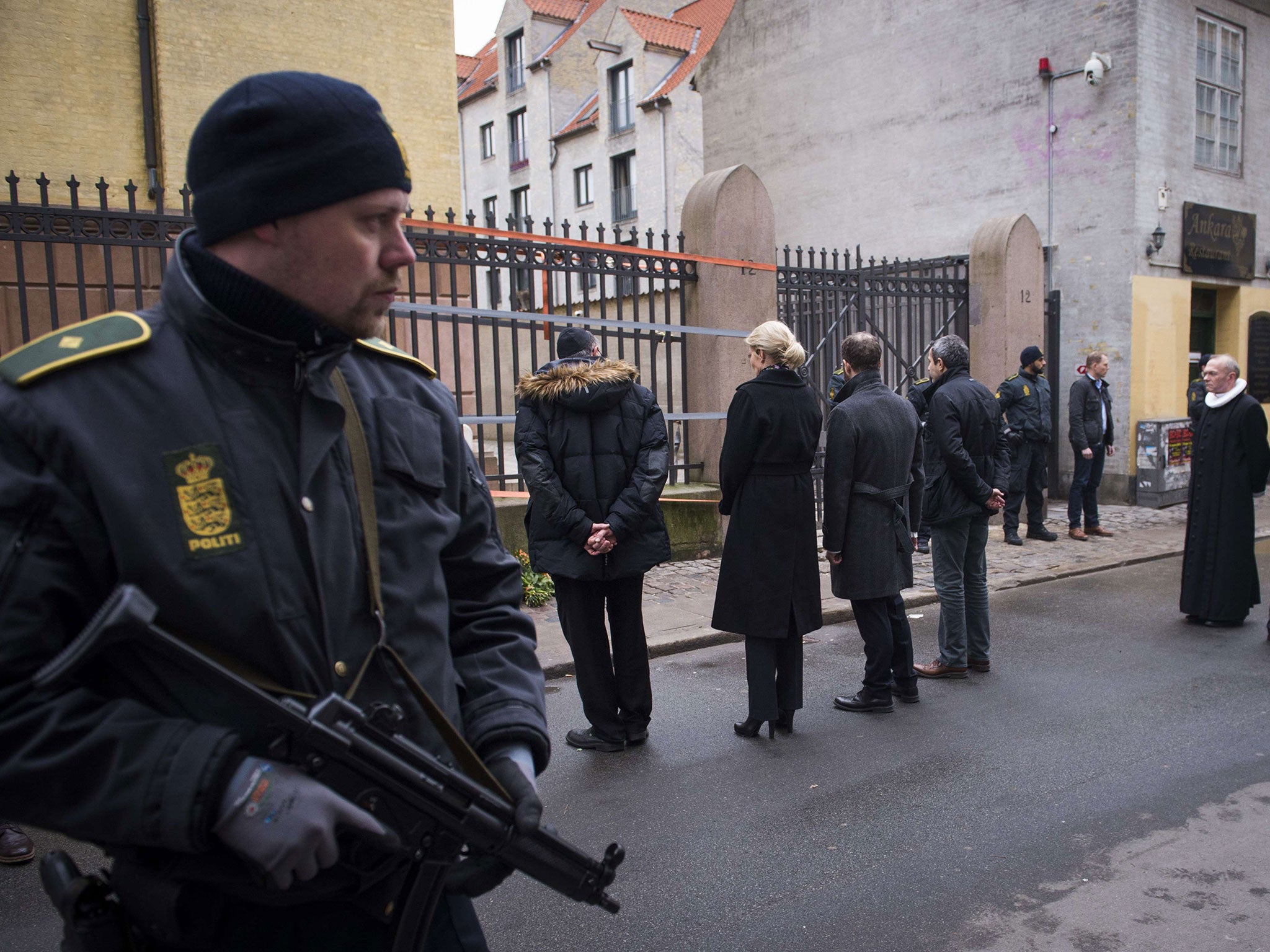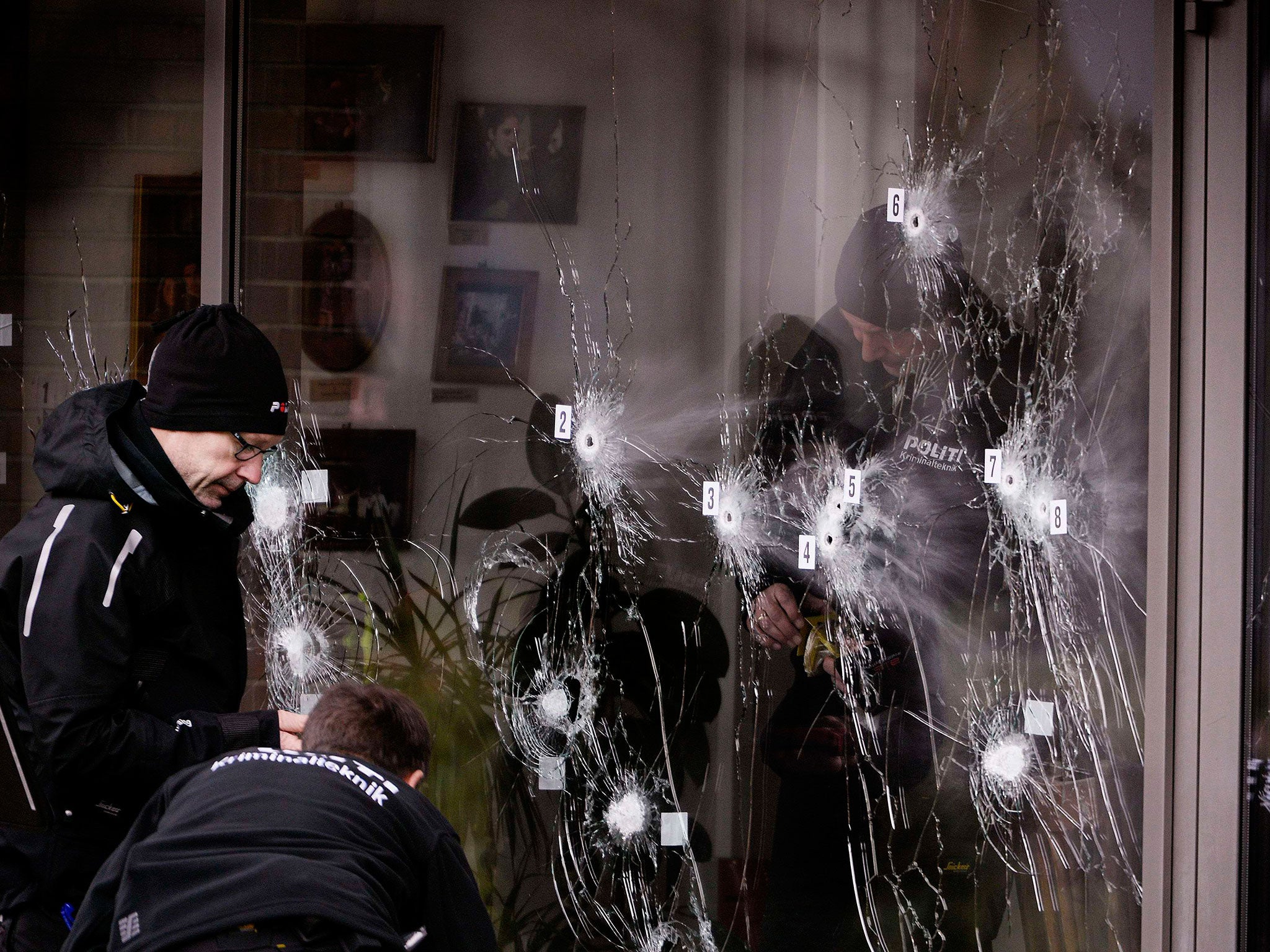Copenhagen shootings: Survivors speak of ordeal - 'We could see in his eyes that something terrible had happened'
Survivors of the Copenhagen synagogue attack tell Richard Orange how the night unfolded

Your support helps us to tell the story
From reproductive rights to climate change to Big Tech, The Independent is on the ground when the story is developing. Whether it's investigating the financials of Elon Musk's pro-Trump PAC or producing our latest documentary, 'The A Word', which shines a light on the American women fighting for reproductive rights, we know how important it is to parse out the facts from the messaging.
At such a critical moment in US history, we need reporters on the ground. Your donation allows us to keep sending journalists to speak to both sides of the story.
The Independent is trusted by Americans across the entire political spectrum. And unlike many other quality news outlets, we choose not to lock Americans out of our reporting and analysis with paywalls. We believe quality journalism should be available to everyone, paid for by those who can afford it.
Your support makes all the difference.As Anat Taboul sat on the floor of the safe room under Copenhagen’s synagogue with her 13-year-old son Noah on Saturday night, she made every effort not to let the children around her pick up on her growing feeling of dread.
“All the adults were looking into each other’s eyes and we all thought something terrible was happening,” she said.
“We were afraid there were terrorists actually in the building, but we couldn’t discuss it, because we wanted to protect the children.”
The Bar Mitzvah disco for the son of family friends had barely begun when Tobias, one of the two volunteer guards on duty that night, abruptly shut off the music, telling everyone to go to the basement. “He said the police had informed him that we should stay here and that it was just a security procedure,” Ms Taboul said.
The din of the first two dance music tracks had drowned out the sound of shooting in which Tobias’s colleague, Dan Uzan, had been killed and five police officers injured only moments before, but the adults suspected this was just a story to prevent the children panicking.
“We didn’t hear anything,” Ms Taboul’s husband Yoav, 43, said. “But we could just see in his eyes that something terrible had happened.“
So thick were the walls and doors that only one person was able to get mobile phone reception inside the secure room, but this was enough for the adults to learn that the entire Copenhagen district around them had been cordoned off by police.
“We stayed in a small room for nearly two hours. We were very hot, without anything at all,” Anat said. “We just sat there and the children were crying and we were taking care of them.” Each of the unaccompanied children was paired with an adult, who would look after them.
Two hours later, Tobias returned to help them evacuate safely. Outside, Danish special forces were waiting to drive them to a police station outside Copenhagen, the same place where people evacuated from that afternoon’s café attack had been taken just hours earlier.

“They had psychologists there to help the children. It was a real crisis situation. It was the same person, who had done it twice in one day,” Mr Taboul said. “He said it was the worst day of his life.”
Faced with the growing anti-Semitic mood, Jews in Copenhagen had already been taking more precautions. Ms Taboul said she stopped wearing her Star of David necklace after graffiti was scrawled at her son’s school last summer.
“Coming to the synagogue, we feel safe normally,” she said. “But we always think, ‘Maybe something will happen some day,’ because there’s never any police here.” Meanwhile, Israeli Prime Minister Benjamin Netanyahu today urged European Jews to emigrate to Israel for their own security. He said: “Jews deserve protection in every country, but we say to Jews, to our brothers and sisters, Israel is your home. We are preparing and calling for the absorption of mass immigration from Europe.”
Denmark’s Chief Rabbi Jair Melchior said he was “disappointed” by Mr Netanyahu’s stance. But Michael Alt Schuul, 53, a photographer and former volunteer guard at Copenhagen Synagogue, said: “We will have another attack on a synagogue or the Jewish school. I have a child there, but you can’t say my children can’t go to the only Jewish school, because then you are cutting off your Jewish life.
“My children know that if they hear a shot, they have to fall down on the ground immediately. It’s just a part of being a Jew. Other Danes live in a totally other world.”
He said he understood what Mr Netanyhau meant: “I do have sympathy – but of course we choose not to live there.”